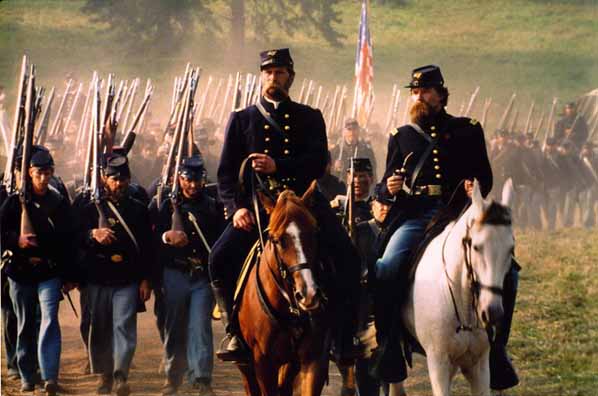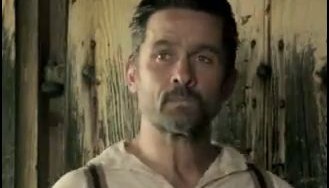Interviews
Ron Maxwell

When a director helms a major hit, online it sometimes overshadows much of his career. M. Night Shyamalan, for one, was inevitably hurt by the fact that nothing he did after The Sixth Sense (1999) compared to that Oscar-nominated drama. The auteur has made a few strong pictures since then– it’s been a while though– but the excitement of his earlier work was never replicated for audiences.
Bridesmaids (2011) director Paul Feig shouldn’t have that concern. His latest comedy The Heat continues his comedic hot streak and is almost as much of a home run as his 2011 hit was.
Melissa McCarthy, who earned an Oscar nomination for her supporting role in Bridesmaids, leads a comedic duo here alongside Oscar winner Sandra Bullock. McCarthy plays an out-of-control Boston police officer named Mullins, who never learned a rule she followed and never met a suspect she didn’t rough up. Working alongside her is Bullock, who plays Ashburn– a work-obsessed FBI agent who is pursuing a highly-coveted promotion.
Both women are forced to work together on a case involving a mysterious drug lord, whose crimes in Boston are well-known around town.
Although the plot sounds bland, it merely provides the set-up for one of the year’s best comedies, and possibly one of its best films.
McCarthy delivers a laugh-out-loud performance here that truly shows what she’s capable of when she’s given a strong script and a decent character. The Mike and Molly star often plays crude and obnoxious characters but there is a difference between the character she plays here and the ones she’s played in The Hangover: Part III (2013) and in Identity Thief (2013) earlier this year. The flawed character here is redeemed because when she acts out, it’s often in pursuit of justice. She may be crude but her crudeness only reinforces her character’s dislike for the rules that hinder her ability to bring criminals to justice.
Bullock, on the other hand, is great as the straight-laced partner forced into odd situations by her reckless partner. Although she is given fewer comedic opportunities as “the straight man”, the actress proves that she hasn’t lost the charm and the relatability that has made her stand out in the seemingly-glamorous Hollywood crowd.
The Heat, which is packed with great one-liners and a few inventive politically-incorrect jokes, is supported by some great sight gags that will leave audiences in hysterics. Some of these scenes are unnecessary to the plot (the Denny’s scene, for instance) but are completely worth it because of the laughs they elicit. In scenes such as this, the story doesn’t shy away from graphic displays of blood so audiences should be prepared to flinch for a few seconds before they laugh at the pure insanity of it all.
In terms of the comedy itself, The Heat offers less crudeness but more cussing than Bridesmaids. Mullins seldom says a line without an expletive but that’s not surprising considering her character’s tough facade. Regardless, this flick works far better than most and shows that this trio—Feig, McCarthy, and Bullock— is was made in comedy heaven.
The ending leaves open the possibility for sequels down the line but I, for one, can’t wait for the comedic fire of this fun story to keep burning.
“The more I study the war… the less I understand it, buy information pills
” director Ron Maxwell noted in a recent interview about his latest film, sick
Copperhead. The noted filmmaker — who previously helmed Gettysburg (1993) and Gods and Generals (2003) — explores the battle from a unique viewpoint in his new drama.
Copperhead tells the story of Abner Beech (Billy Campbell), store
a Northern farmer who opposes slavery but also believes that many of President Abraham Lincoln’s actions during the war are blatantly unconstitutional. A fierce advocate for peace and the Constitution, Abner faces opposition and threats from his pro-war neighbors, who fully support the 16th president’s efforts.
Based on the novel by Harold Frederic, the story focuses on Abner and his small upstate New York community while the Civil War wages hundreds of miles away.
In an interview I conducted with Maxwell, he noted that he’s “acquired an appetite for Civil War fiction” over the years and that the characters in this story, although fictional, are reacting to actual events. “The events they talk about—the events that happened in 1862 that are historical — really happened,” he said. Maxwell later added that Frederic presumably saw events similar to those he wrote about as a young person growing up during the war.
Many people, whose views are comparable to Beech’s own, did exist. As the New York Times noted, the term copperhead was — during the Civil War — a well-known and derogatory nickname for Peace Democrats, a group of individuals who criticized the way the president prosecuted the war and the controversial — and arguably unconstitutional – decisions he made.
Unlike many other war films we’ve seen, Maxwell chose to make this film not about soldiers themselves — but about the people they leave behind. He said, “In a normal war movie…the camera goes with them [the soldiers] to the front lines.” It never does here. Despite the fact that several characters go off to battle, Maxwell’s camera also stays behind, driving home the point that when some go to war, others are left to take care of their families and their communities.
Although the story is set entirely during the Civil War, Maxwell noted the relevancy of this situation today. “You can’t help looking at a movie like this and feeling for the families that are at home,” he said referring to those who are left behind when soldiers head over to fight overseas.
Some will inevitably compare Beech to those who have opposed contemporary conflicts like the wars in Vietnam, Afghanistan and Iraq. Beech was an anti-war citizen whose feelings about the war were well-known but Maxwell said comparing him to some, for instance, who opposed the Vietnam War would be wrong. He noted that some anti-war activists went over the line taking photos with our opponents during that war, something he said is akin to “Abner Beech… going down to Richmond and getting his photograph taken with the leaders of the Confederacy.”
And Maxwell noted that Beech and those who stood beside him may have firmly believed in their cause but their values are not well-regarded by historians or by the general public.
“The Copperheads were not vindicated,” Maxwell said. “They were on the wrong side of history.”
Copperhead hits theaters nationwide on Friday.










